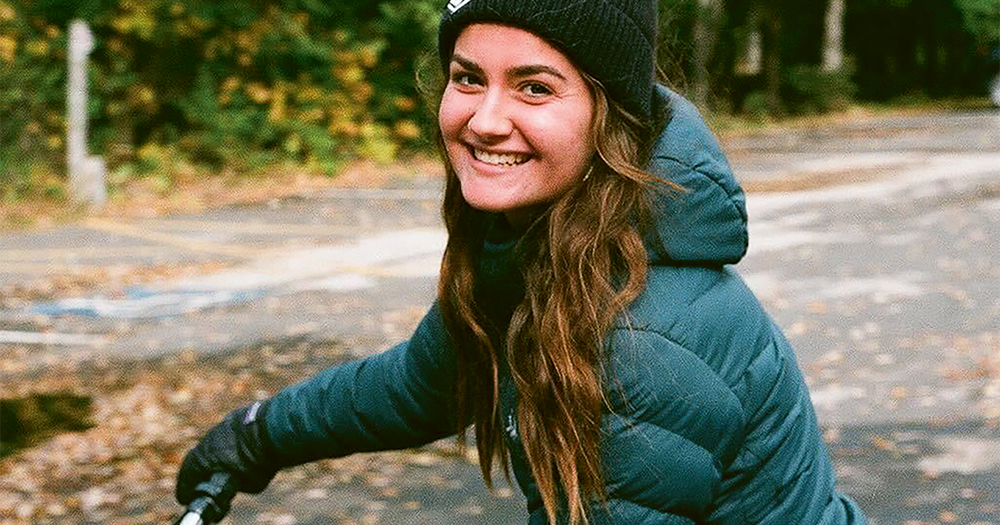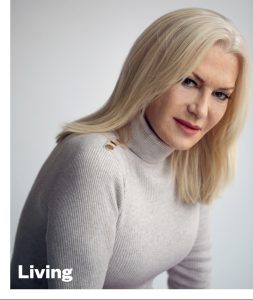Sexual shame is a beast of its own. It can manifest in a feeling of disgust at permitting our hand to invoke the mountainous pleasure our bodies are capable of. It can exist as a fear of deleted search histories or unspoken decisions, not to mention what went down the previous night.
Growing up in strict Catholicism, surrounded by an ideology that neglects to mention anything about sex besides celibacy, I am just now, a 21 year-old woman, coming to understand the shame that shaped my sexual coming of age. As I began to free myself from previous sexual constraints placed by the conditions of my childhood, I allowed myself to intentionally consider the thoughts and experiences of the younger me that had lodged themselves like misshapen pebbles within my consciousness.
The first time I ever felt horny, was comically, in a religious shop in the suburbs of Minnesota. No folks, it wasn’t the framed paintings of the Virgin Mary or a thin man bleeding on a wooden post that induced a sexual arousal, but actually that I just had to pee really badly.
As I held in my need to use the bathroom, pulling up on my shorts, and waiting for my devoutly Catholic Lebanese mother to finish browsing, I felt one of the first discernible rushes of sexual excitement. With no vocabulary to describe this feeling, I began, as a baby born in the internet age does, searching through Google on my iPod touch.
I just needed something, anything, to grasp onto to understand these sensations. Amidst this quest, I constantly felt a pair of imaginary eyes peering over my shoulder to judge me. In response, I only allowed myself short brackets of time, very rarely, to read pages with headings like ‘Why do I get excited down there’, or when I felt really bold: ‘How to make yourself feel good’.
And so began my sexual education.
Later, as I secretly searched the internet for things that would arouse me, I told myself I could only masturbate once a month. In fear of my own pleasure, I thought it was best that I set these artificial restrictions. I so desperately wanted to revel in these new and exciting experiences, but a cloud of shame suffocated me. Moments that should have connected desire to the discovery of satisfaction left me rigid and horrified of the content that aroused me.
14 years-old and sitting in the passenger seat of my mom’s car while she drove me home from a day of school, a question popped into my head: “if I am turned on by women and men, am I lesbian?” I had no idea that someone could be attracted to both sexes, nevertheless that being bisexual was an existing sexual orientation.
The constant emphasis on refraining from sin that drove the adults closest to me deeply affected my ability to discern what was just a healthy component of sexual expression. I wasn’t scared of being sent to Hell by God because I wasn’t scared of a God at all. I was terrified to lose the acceptance of those around me. I didn’t give a second thought to the sermons I tuned out on Sundays, but my most intimate thoughts were tainted by these harsh doctrines that were enshrined by the major institutions, like education, in my life.
Compounding this were the adults who enforced these teachings, of which the young people around me, by extension, emulated. I was left in a state of constant confusion and denial, drifting between the need to pleasure and accept myself but feeling absolutely wretched for it.
I believe my experience, similar to others, exemplifies the power that an ideology with such restrictive sexual education has. It seeps into our young developing minds, through enforcement by our community, in a way that drives feelings like shame and guilt before we even understand what, and who, we truly desire.
Empowering young people with tools to describe and explore their desires in the absence of shame will help prevent this cognitive dissonance that can form when sexual preferences begin to manifest but we actively try to deny ourselves from learning about them.
Now, when the memory of young me—standing cross legged in that church shop—pops into my head, I smile at the beautifully hilarious irony of it all and take pride in the power of retelling and owning my narrative in an effort to support the sexual self-discovery of all young people.
This article originally appeared in GCN Issue 369 which you can read in full here.
© 2021 GCN (Gay Community News). All rights reserved.
This article was published in the print edition Issue No. 369 (December 3, 2021). Click here to read it now.
Support GCN
GCN is a free, vital resource for Ireland’s LGBTQ+ community since 1988.
GCN is a trading name of National LGBT Federation CLG, a registered charity - Charity Number: 20034580.
GCN relies on the generous support of the community and allies to sustain the crucial work that we do. Producing GCN is costly, and, in an industry which has been hugely impacted by rising costs, we need your support to help sustain and grow this vital resource.
Supporting GCN for as little as €1.99 per month will help us continue our work as Ireland’s free, independent LGBTQ+ media.

